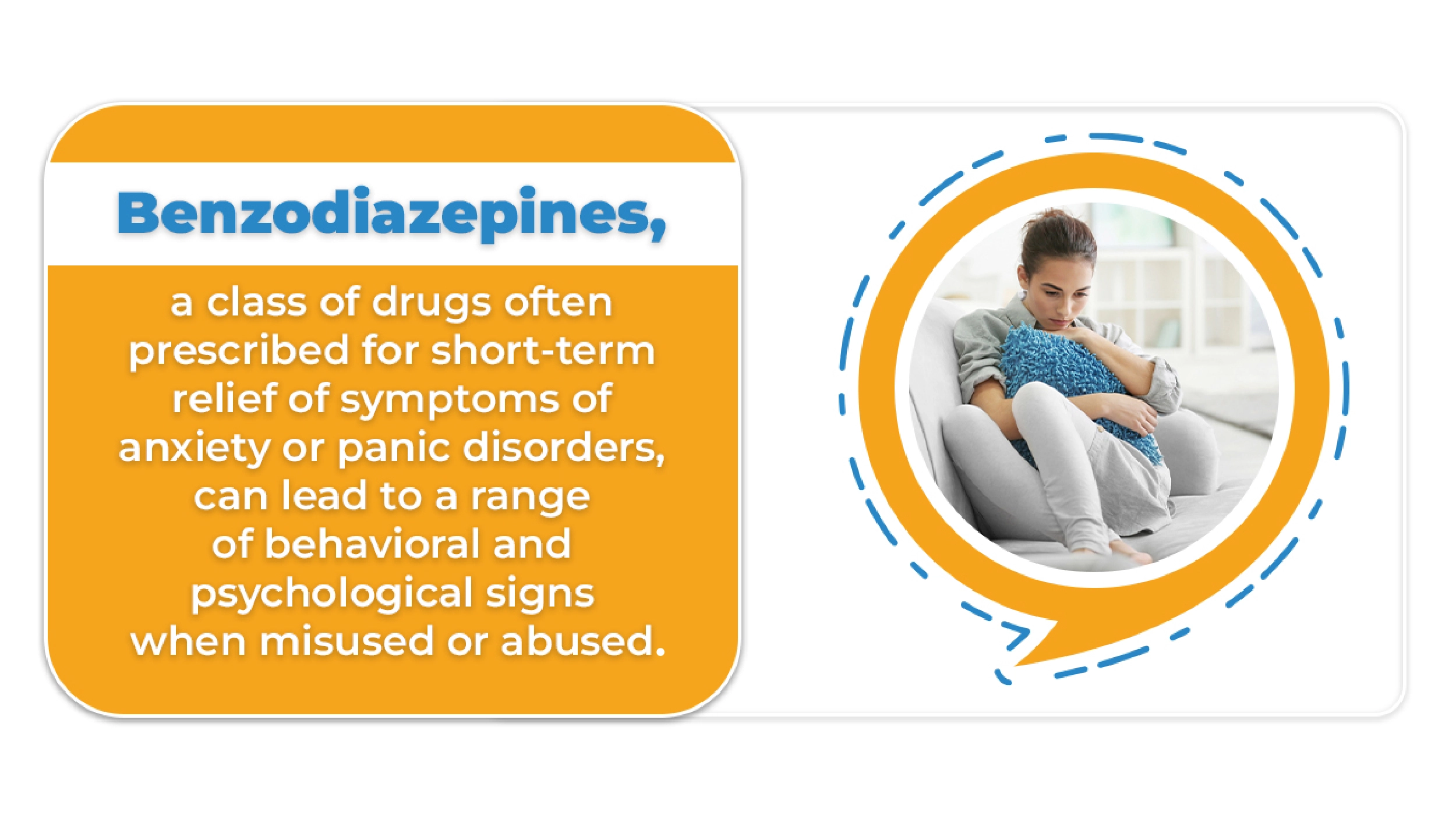
Lyrica With Suboxone: Risks And Safe Practices
The Recovery Team-Newton explores whether taking Lyrica with Suboxone is safe. Explore potential risks and guidelines

Benzodiazepines, a class of medications renowned for their calming effects on the central nervous system, play a vital role in the treatment of various medical conditions. People often turn to these medications as they are valuable in reducing symptoms of anxiety disorders and easing alcohol withdrawal.
However, long-term use can lead to adverse side effects, impacting memory and leading to addiction. That is why it is crucial to weigh the benefits against potential risks. Various types of holistic addiction treatment programs are available to help individuals struggling with benzodiazepine addiction and dependence.
Treatment services at The Recovery Team-Newton cater to benzodiazepine addiction. Inpatient programs offer comprehensive care. Healthcare professionals, in this level of care, provide medical advice and support for patients, requiring close monitoring and a structured environment.
The intensive outpatient program offers similar therapy and support but allows individuals to reside at home while attending therapy sessions. An outpatient program provides flexibility, enabling patients to continue daily routines while receiving treatment. The primary goal of treatment services is to address addiction effectively by managing withdrawal symptoms and promoting recovery.
Benzodiazepines can relieve anxiety but cause adverse effects when users misuse them, including addiction risks. Here’s what you need to know:
The Recovery Team-Newton offers comprehensive addiction treatment services. Call us at (508) 978-2772 today for more information.
Benzodiazepines, a class of drugs often prescribed for short-term relief of symptoms of anxiety or panic disorders, can lead to a range of behavioral and psychological signs when misused or abused.
Here are the behavioral symptoms associated with benzodiazepine addiction that you should know:
Psychological symptoms of benzodiazepine dependence include:
If you or a loved one displays any of these symptoms, it could be a sign of benzodiazepine addiction. Seek professional help and support to overcome this issue.
Recognizing when to seek treatment for benzodiazepine addiction is essential. If you experience adverse effects on your nervous system, memory, or cognitive function due to the prolonged use of benzodiazepines like Diazepam, it’s time to consider help.
If you believe your symptoms of panic disorder are getting worse when not using your prescription, you may be experiencing withdrawal. Withdrawal symptoms are a sign that your body has become dependent on the drug. That is a clear sign to seek treatment.
Treatment often focuses on restoring the balance of gamma-aminobutyric acid (GABA) in the brain. Such an approach can help regain control and achieve a drug-free life.
If you suspect a loved one is struggling with benzodiazepine addiction, offer support and guidance. Look for signs such as escalating drug use, memory problems, or changes in behavior. Encourage open, non-judgmental communication and express your concern for their well-being.
Suggest seeking professional help through healthcare providers or addiction specialists. Remember, addiction is a complex issue, and your understanding and support can make a significant difference in your loved one’s journey toward recovery. Be patient, persistent, and compassionate, as healing often begins with acknowledging the need for help.
Benzodiazepine addiction can stem from various causes, often rooted in patterns of use and external influences. Understanding these aspects is essential to address the issue effectively.
Benzodiazepines, frequently prescribed for anxiety and sleep disorders, can be misused or taken recreationally. Some individuals seek the sedative effects, often at high doses, which escalates the risk of addiction. The availability of different benzodiazepines contributes to misuse diversity.
People may self-medicate using benzodiazepines to alleviate symptoms like anxiety, insomnia, or stress. They may not realize the potential risks of prolonged use, as these medicines are initially intended for short-term treatment.
Social circles and peer pressure can play a significant role in benzodiazepine addiction. Individuals might start using these substances due to influences within their social networks, increasing the likelihood of developing an addiction.
Various factors, including personal history, genetics, and trauma, influence benzodiazepine addiction risk. Recognizing these risk factors is essential for prevention and early intervention.
Individuals with a history of substance abuse are at higher risk of developing benzodiazepine addiction. Prior addiction experiences can make it more challenging to use benzodiazepines responsibly.
Genetic factors can contribute to susceptibility. Some individuals may have a genetic predisposition that makes them more vulnerable to addiction when exposed to benzodiazepines.
Experiencing trauma or high levels of stress may lead some individuals to use benzodiazepines as a coping mechanism. That can result in long-term use of benzodiazepines, increasing the risk of addiction, especially among those dealing with unresolved trauma.
Benzodiazepines, a class of central nervous system depressants, have both physical and psychological effects on the body. The outcomes vary based on dosage, duration of use, and individual differences.
Benzodiazepines enhance the inhibitory neurotransmitter GABA, resulting in sedation. This effect is particularly evident in the short-term use of these medications, aiding in medical procedures or acute anxiety relief.
However, misuse of this drug may lead to headaches or migraines. Complications in the digestive system, such as constipation or diarrhea, may occur in some individuals. This class of medication can also cause dizziness and drowsiness, affecting an individual’s ability to perform tasks requiring focus and alertness.
In some cases, especially with high doses or in elderly patients, benzodiazepines can lead to respiratory depression, a potentially life-threatening effect. When combined with other central nervous system depressants, such as opioids or alcohol, benzodiazepines can heighten the risk of overdose. Naloxone is sometimes used to counteract opioid overdose.
Benzodiazepines are infamous for their potential to cause unwanted behavior. That can result in risky actions that individuals might not engage in when sober, such as taking a benzodiazepine with alcohol.
A significant behavioral effect is persisting in benzodiazepine use even when harmful consequences, such as adverse side effects or personal issues, arise. The behavioral effects of benzodiazepine use can vary from person to person, depending on factors like dosage, frequency of use, and individual susceptibility.
Benzodiazepines can lead to mood changes, with some individuals experiencing a sense of relaxation and reduced anxiety. However, they may also exacerbate mental health issues, especially in long-term or high-dose use. Prolonged use of benzodiazepines can result in cognitive decline, affecting memory and concentration.
Psychological effects also include the risk of developing dependence, as some individuals may misuse or become addicted to these drugs. Combining benzodiazepines with other substances or medications, such as antidepressants, can lead to the development of mental illnesses such as panic disorder or depression.
Benzodiazepine addiction is a complex issue that requires comprehensive treatment approaches tailored to an individual’s needs.
Inpatient rehabilitation programs provide a structured and controlled environment for individuals seeking recovery from benzodiazepine addiction. These programs offer 24/7 medical and psychological support, allowing patients to focus solely on their recovery.
Therapy, counseling, medication-assisted treatment, and group support are integral components of inpatient treatment. The duration of inpatient rehabilitation can vary but typically lasts from 28 days to several months.
Outpatient treatment is an option for individuals who do not require the intensity of inpatient care or need to maintain their daily routines. It provides flexibility, allowing individuals to attend therapy and counseling sessions while living at home. Outpatient programs vary in intensity, from standard outpatient sessions to the partial hospitalization program (PHP), which offers more frequent therapy.
Continuing care is crucial in preventing relapse. After completing formal treatment, individuals often transition to aftercare programs, including ongoing therapy, support groups, and regular check-ins with healthcare providers.
Learning coping strategies and relapse prevention techniques are vital to maintaining long-term recovery. Successful recovery often involves a combination of these approaches tailored to the individual’s unique needs and circumstances. Seeking professional guidance and support is essential in managing benzodiazepine addiction and achieving a drug-free life.
Are you or a loved one seeking help to overcome addiction and regain control of your life? The Recovery Team-Newton is here to support your journey.
Our intensive outpatient program provides comprehensive support and therapy in a structured environment. Moreover, our outpatient program offers flexibility to maintain daily routines while receiving treatment. We specialize in dual diagnosis treatment, addressing co-occurring mental health conditions and addiction.
If you’re ready to take the first step toward a healthier, addiction-free life, don’t hesitate to contact us at (508) 978-2772.
Benzodiazepines, a class of psychoactive medications primarily prescribed to alleviate symptoms of anxiety and insomnia, can elicit a range of side effects. Common side effects include drowsiness, dizziness, impaired coordination, and memory problems.
Some users may experience digestive issues, headaches, or changes in appetite. Long-term use can lead to tolerance, dependence, and withdrawal symptoms when discontinuing the medication. Individuals must be aware of these potential side effects and use benzodiazepines as prescribed under the guidance of a healthcare provider.
Qualified healthcare providers should prescribe benzodiazepines to manage specific medical conditions. They primarily indicate these drugs for short-term use in cases of severe anxiety, panic disorders, insomnia, or muscle spasms.
Furthermore, healthcare providers can administer benzodiazepines as premedication for specific medical procedures. The decision to use benzodiazepines should rely on a careful evaluation of an individual’s condition and an assessment of potential benefits versus risks.
Benzodiazepines, often referred to as “benzos,” are a class of psychoactive drugs that work by enhancing the activity of gamma-aminobutyric acid (GABA) in the brain. GABA is an inhibitory neurotransmitter that promotes relaxation and reduces brain activity, making benzos effective in calming the central nervous system.
They are commonly prescribed for their sedative and anxiolytic (anxiety-reducing) properties. However, their use should be controlled and monitored due to the risk of dependence and other side effects, especially with prolonged or misuse.

The Recovery Team-Newton explores whether taking Lyrica with Suboxone is safe. Explore potential risks and guidelines

Learn about Suboxone injection side effects and explore recovery solutions in this guide by The Recovery Team-Newton.